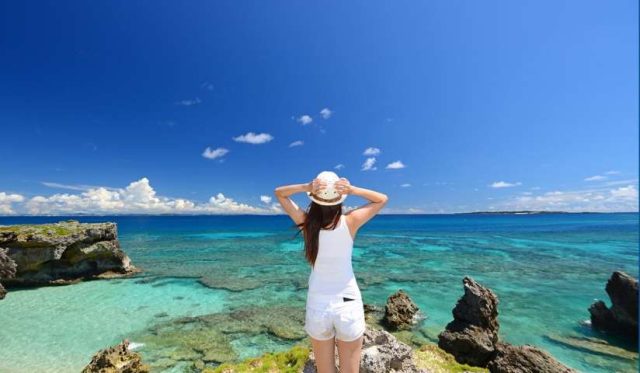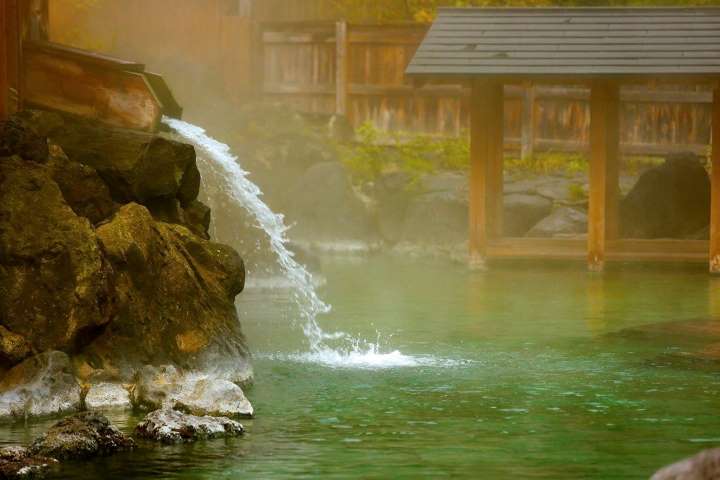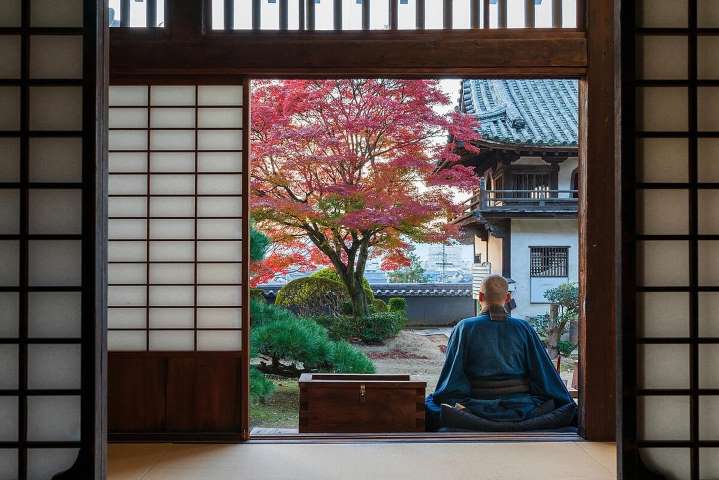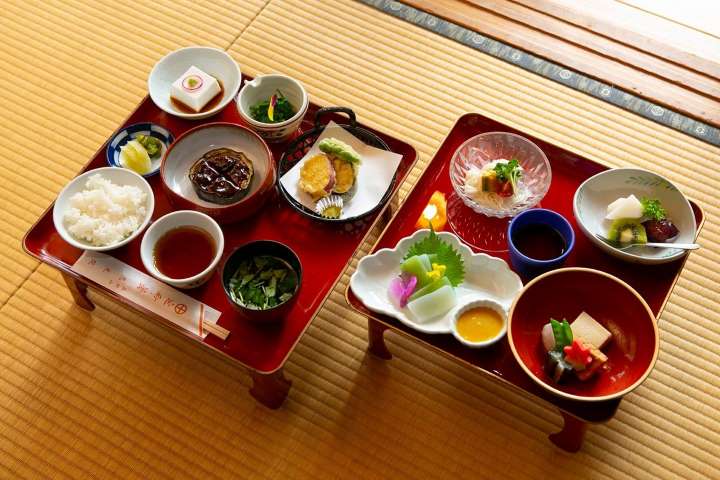
Japan has been called “the land of the rising sun” for centuries. It’s also known for its culture, cuisine, and natural beauty. The country offers visitors a variety of authentic Japanese wellness practices, from Japanese practice of shinrin-yoku or “forest bathing” to the basics of zazen meditation. Here are 4 authentic Japanese wellness practices to consider.
SHINRIN-YOKU: FOREST BATHING

Although it’s only recently become popular in the west, the Japanese practice of shinrin-yoku or “forest bathing” was introduced in the 1980s as an antidote to the country’s increasingly urban, indoor lifestyle. The concept is simple: disconnect from technology, immerse yourself in nature, and engage your senses. Listen to the sounds of the forest, meditate as you mindfully stroll, breathe in the cool air, remain present and take in the calming atmosphere around you. Forest bathing has been shown to slow your heart rate and decrease depression, fatigue and anxiety – all from a walk in the forest. In fact, the health benefits are so marked that Japanese doctors actually prescribe shinrin-yoku to their patients!
Japan offers plenty of opportunities to practise this unique wellness activity, especially within the country’s national parks. While anyone can choose a path and immerse themselves in nature, there are guided and semi-guided options available. Walk through a tunnel of twisted evergreen branches in Yakushima (Island) National Park – where you might also spot a wild monkey; stroll through 100-year-old red pines along the Ichimanpo-no-Mori Forest Bathing Trail, or even forest bathe via canoe on the Toyohira River. Learn more about forest bathing in Japan here.
ONSEN (HOT SPRING) EXPERIENCES

Relaxing in the thermal waters of an onsen (hot spring) is a quintessentially Japanese experience. Fed by volcanically-heated water rich in minerals, onsen are equal parts relaxing, healing and spiritual. There are literally thousands of hot spring towns and resorts throughout the country, and your onsen experience could be anything from soaking your feet in a public foot bath by the side of the road, to luxuriating in your own private bath at a five-star resort. This natural phenomenon can be experienced in both the summer and winter, by the beach or up in a ski resort – that’s how widespread onsen are! Not interested in getting wet? Try a “sand bath” where you’ll be buried in warm sand heated by the volcanic waters below.
The ritual does come with some traditions: in most cases men and women will bathe separately, you’ll need to thoroughly wash before entering the water, bathing suits are not permitted (the exception being at some public onsen where everyone can bathe together), and visible tattoos are not permitted in public spaces, although some private hot springs are more flexible. Learn more about experiencing onsen in Japan here.
ZEN MEDITATION

Ready to take your meditation practice beyond the Headspace app on your phone? In Japan, you can build on your meditation skills by joining a session at Buddhist temples and retreats all throughout the country. In Zen Buddhism, meditation is practised to gain self-realisation and enlightenment. Once only associated with monks and other religious devotees, meditation is now widely embraced by those who want to reap the well-documented health and wellness benefits, including managing anxiety and depression, and improving sleep quality.
There are many new techniques you can learn by joining a sesshin, a group meditation at a temple that is open to the public. Typically, you’ll learn about how to incorporate aspects of Zen into your life and the basics of zazen meditation, before being guided through a session. You’ll also get a chance to explore the grounds of the temple and engage in other Zen activities. Reservations are usually required, and while some temples offer daily classes, others are less regular, especially those offering English instruction. Learn more about experiencing Zen meditation on a trip to Japan here.
SHOJIN RYORI – SPIRITUAL SOUL FOOD

All that meditation can work up an appetite! For those who want to delve further into their spiritual side, a one- or two-night shukubo (temple stay) can offer a unique experience and respite from the hustle and bustle of travel. While your accommodation won’t be five-star, it will be very comfortable, and for many, the food is a big highlight. Known as shojin ryori, the meals at temples are simple and vegetarian, focussing on natural, seasonal ingredients and avoiding meat, fish, and strong flavours such as garlic and onion. Accompanied by rice, pickles, and a vegetable soup, every meal is based on the “rule of five” with five colours (black, white, green, yellow and red) and five tastes (sweet, salty, sour, bitter and umami). The result is food that is as beautiful as it is delicious and healthy.





